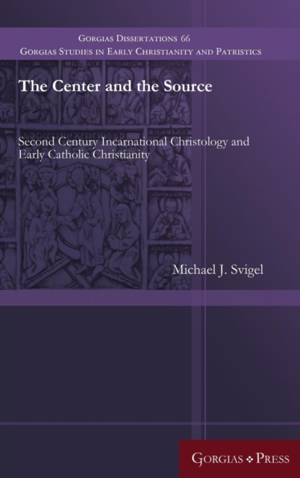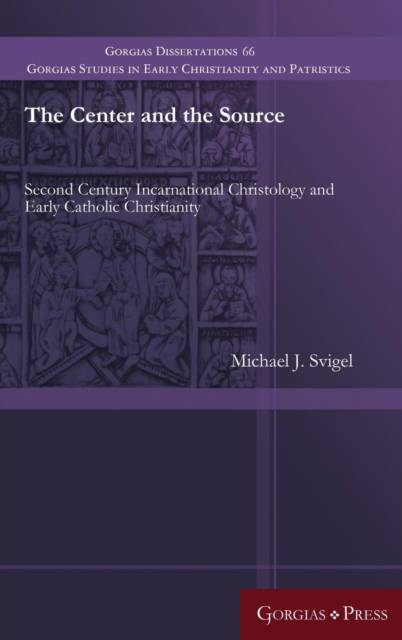
- Afhalen na 1 uur in een winkel met voorraad
- Gratis thuislevering in België vanaf € 30
- Ruim aanbod met 7 miljoen producten
- Afhalen na 1 uur in een winkel met voorraad
- Gratis thuislevering in België vanaf € 30
- Ruim aanbod met 7 miljoen producten
The Center and the Source
Second Century Incarnational Christology and Early Catholic Christianity
Michael J SvigelOmschrijving
The identity of catholic Christianity in the early second century was marked by a unified confession of the unique incarnational narrative--that the heavenly Son/Logos became incarnate, suffered, died, rose again, and ascended into heaven. In the early second century this narrative was already widespread and played a foundational role in the theology and paraenesis of catholic Christians. This confessional identity both preceded and precipitated identity-challenging christological conflict with teachers and traditions that rejected central tenets of the incarnational narrative. This book further proposes a model for explaining unity and diversity in early Christianity that centers about a clear confessional identity, allowing both extreme expressions of diversity of texts and traditions while explaining the exclusion of teachers, texts, and traditions that deviated from the confessional norm. This model also proposes an explanation for the promotion and protection of a clear catholic identity in the early second century apart from the structures of an established canon, creed, and cathedra. Furthermore, this early, widespread, and foundational incarnational narrative suggests that its historical roots reach back perhaps as early as the middle of the first century among the majority of first generation Christians.
Specificaties
Betrokkenen
- Auteur(s):
- Uitgeverij:
Inhoud
- Aantal bladzijden:
- 490
- Taal:
- Engels
- Reeks:
- Reeksnummer:
- nr. 66
Eigenschappen
- Productcode (EAN):
- 9781463206468
- Verschijningsdatum:
- 9/11/2016
- Uitvoering:
- Hardcover
- Formaat:
- Genaaid
- Afmetingen:
- 152 mm x 229 mm
- Gewicht:
- 820 g

Alleen bij Standaard Boekhandel
Beoordelingen
We publiceren alleen reviews die voldoen aan de voorwaarden voor reviews. Bekijk onze voorwaarden voor reviews.












